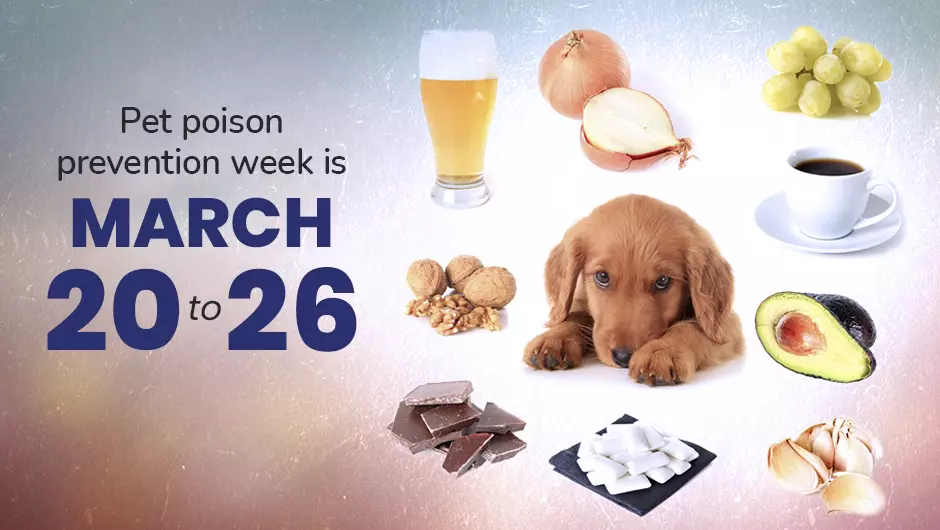Every year since 1962, the Pet Poison Helpline has dedicated the third week in March as Pet Poison Prevention Week. Pets are naturally curious creatures who often can't resist the urge to smell, taste, and touch things in the home or yard that are new to them. Unfortunately, they lack the ability to understand that certain items could be dangerous or even deadly when swallowed. To help people keep their beloved pets safe, the Pet Poison Helpline recommends going through each room of your home and looking at it from a dog or cat's perspective.
Room by Room
Bathroom
Keep all medication in a secured bottle in a closed cabinet. Never leave pill bottles or plastic bags containing pills on the countertop as your pet could easily get into them. If your pet takes medication, store it separately from the rest of the family so you don't accidentally give her pills meant for humans. Cleaning supplies should be kept in a locked cabinet or one that is too high for your pet to reach. Try to keep the toilet lid closed since most pets can't resist taking a drink.
Garage
Anti-freeze is especially attractive to pets because it is clear and sweet tasting. If you do spill anti-freeze, dilute it with water and wipe it up immediately. Windshield wiper fluid and brake fluid may contain toxic alcohol. Be sure to keep all chemicals and small items your pet could swallow, such as nails and ties for leaf bags, well out of his reach.
Kitchen
Several human foods are toxic for dogs and cats, including raisins, onion, unbaked yeast, garlic, chocolate, and macadamia nuts. Be sure to sweep the floor often since pets are always on the lookout for dropped treats. Alcohol must be kept away from pets as well. To prevent your little scavenger from choking on bones or getting sick on food waste, be certain that all garbage bags are closed tightly and are inside of an inaccessible space until you take out the trash.
Laundry/Utility Room
Since rodents often enter a home through this room, use extra caution when placing rodenticides or insecticides. Be sure to keep laundry detergent out of reach and shut the doors of the wash machine and dryer. Pets have died getting accidentally trapped in these machines without their owner's knowledge.
Living Room
If you keep plants in your home, make sure you know which ones are toxic.http://www.humanesociety.org/assets/pdfs/pets/poisonous_plants.pdf Other common dangers in the living room include batteries, electrical cords, potpourri, cigarette butts left in ashtrays, remote controls, and various aerosol sprays. Never leave these items around your pet unless you are there to supervise. Women's purses are also great sources of curiosity for pets, but items such as gum and make-up can make them ill if ingested.
Yard
Lawn fertilizer and several types of mulch contain chemicals that could damage an animal's intestinal system. It's important to keep your pet off a recently treated lawn and to supervise her near the garden to avoid accidental poisoning. Never let your pet outdoors when you are mowing the lawn or using other power equipment.
If you think your pet has consumed poison, contact us at Minnesota Veterinary Hospital in Shoreview immediately or call the Pet Poison Helpline at 1-855-764-7661.
Photo Credit: HannamariaH/iStock Photo

